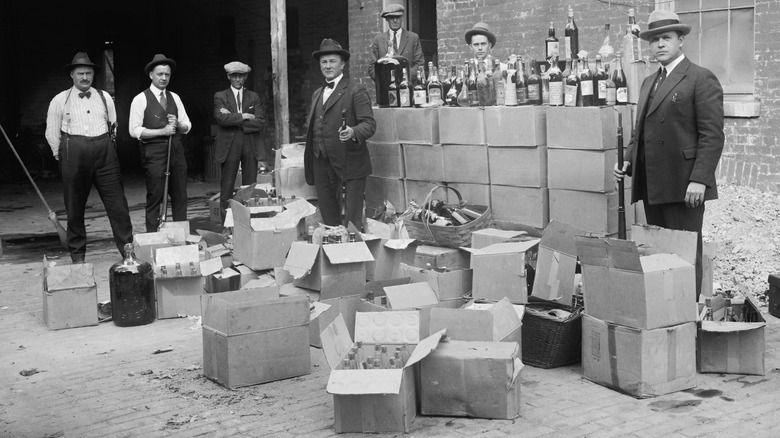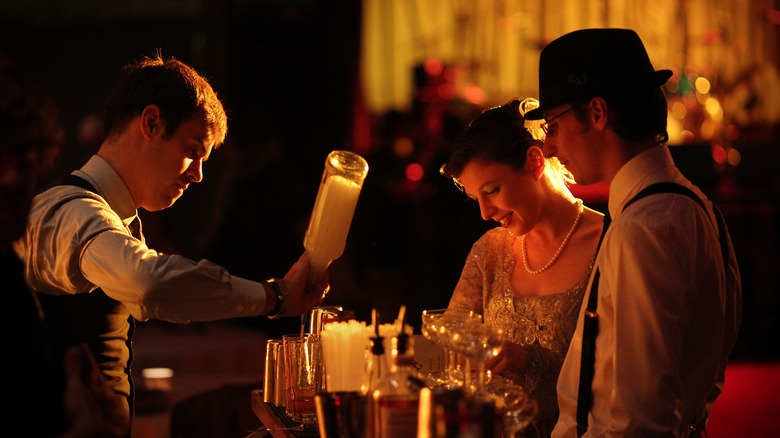How Prohibition Impacted The Cruise Ship Industry
In 1920, the 18th Amendment and the Volstead Act banned the manufacturing, selling, and transportation of all alcohol in the United States (via History). This era, known as Prohibition, lasted for a long 13 years. It ironically led to an upsurge in organized crime, as well as illegal activities related to both the production and consumption of alcohol (per Khan Academy).
Nonetheless, culturally, there was an upside to Prohibition. Speakeasies (illegal drinking spots) flourished. According to the Mob Museum, they created a demand for live entertainment. Thus, the roaring '20s, full of partying and drinking, were in full swing. Before prohibition, men and women were largely separated in social settings, now, they were drinking and living it up together (via Mental Floss).
"Bootlegging" (as the illegal use and production of alcohol was called) thrived. So much so, that notorious Chicago gangster Al Capone made $60 million supplying liquor to speakeasies in the late 1920s. However, speakeasies are not the only thing that prospered under this dry era.
Prohibition led to the creation of the booze cruise
Per Home Wet Bar, other enterprises, including the production of soda, skyrocketed. Likewise, Anheuser-Busch created a lucrative ice cream business, and Coors delved into pottery and ceramic tubing (via Mental Floss). Moreover, the demand for international travel grew for one reason only, per Travel Pulse.
Americans fled to international destinations (mostly Europe) via foreign ships. Prohibition did not exist in other countries, and Americans were thirsty, to say the least. As soon as the ship was six miles offshore, the bar was opened and passengers could drink their way to through vacation.
Per Molly Spirits, sometimes there was no actual destination and the ship circled the coast. As long as they were on international waters, they could drink freely, thus the booze cruise was born. Unfortunately, this affected domestic American ships. However, they tried to entice customers by advertising that they too had the same comfort and services as the foreign liners.
In 1933, the 21st Amendment was ratified and subsequently repealed the 18th Amendment, thus ending Prohibition. With its direct result in building criminal empires and lack of success in enforcing sobriety, it's safe to say that Prohibition was a flop (via History). According to ABC News, after it was repealed, Franklin D. Roosevelt said, "What America needs now is a drink."

